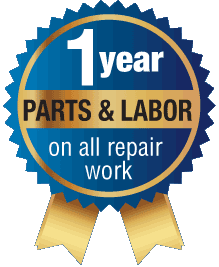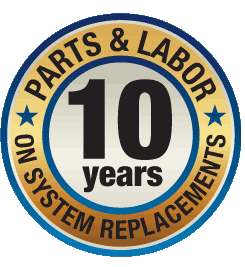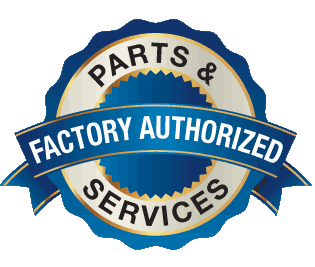Houston HVAC technicians offer some pointers on selecting the right air filter for your residential unit
We’re so glad you asked! The last thing we want is for you to be standing in the filter aisle at your local home improvement store staring at all the different filters and ratings wondering what they mean and which one is best for you. Working on your air conditioning system will have you asking question after question, and luckily, we have some answers for you.
MERV Means…
First off, no, MERV filters were not named after Merv Griffin. MERV actually stands for Minimum Efficiency Reporting Value. In laymen’s terms, it’s a rating created by the American Society of Heating, Refrigerating, and Air-Condition Engineers (ASHRAE) which ranks an air filter’s effectiveness on a 1-16 scale. One is the least effective filter and 16 is the most effective. The higher the MERV rating, the less likely it is that dust, pollen, carpet fibers, and contaminant particles will be able to pass through the filter and into your heating and cooling system.
What’s Your Number?
It’s a common misconception that the higher MERV rating, the better the filter. Much of the effectiveness of the filter also depends on what type of HVAC system you are using in your home. As the MERV filters are rated higher, they not only stop particles from getting through, but they also restrict airflow throughout the system. If your heating and cooling system doesn’t have proper airflow, it might not function properly or effectively no matter what kind of filter you have stopping the dust. Insufficient airflow can even damage your system due to the strain it can place on the intake of air.
Do a little research and find out what filter suits your needs the best. Most residential systems only require a MERV rating of 7-12, while hospitals typically use 13-16 MERV rating. Use this filter guide to help you determine what MERV rating would work best for your home or contact us at (713) 732-6426 and allow us to recommend an air filter for your system.
Change Your Filters
Since MERV filters, especially higher-ranked MERV filters, catch more bacteria, pet dander, and mold spores, they need to be changed more often—every 3 months or so. If not, the trapped dust and dirt will clog the filter and restrict airflow, causing pressure to build, and potentially causing damage to important pieces of your HVAC system.
MERV filters aren’t hard to find! You should be able to find them at any home improvement store near you.
Air filters are important, but don’t forget about regular maintenance. If you’re in the Houston area, have our professional technicians service your heating and cooling system for a seasonal check-up. Also check out our online blog and knowledge center for more information.
 Read reviews
Read reviews








